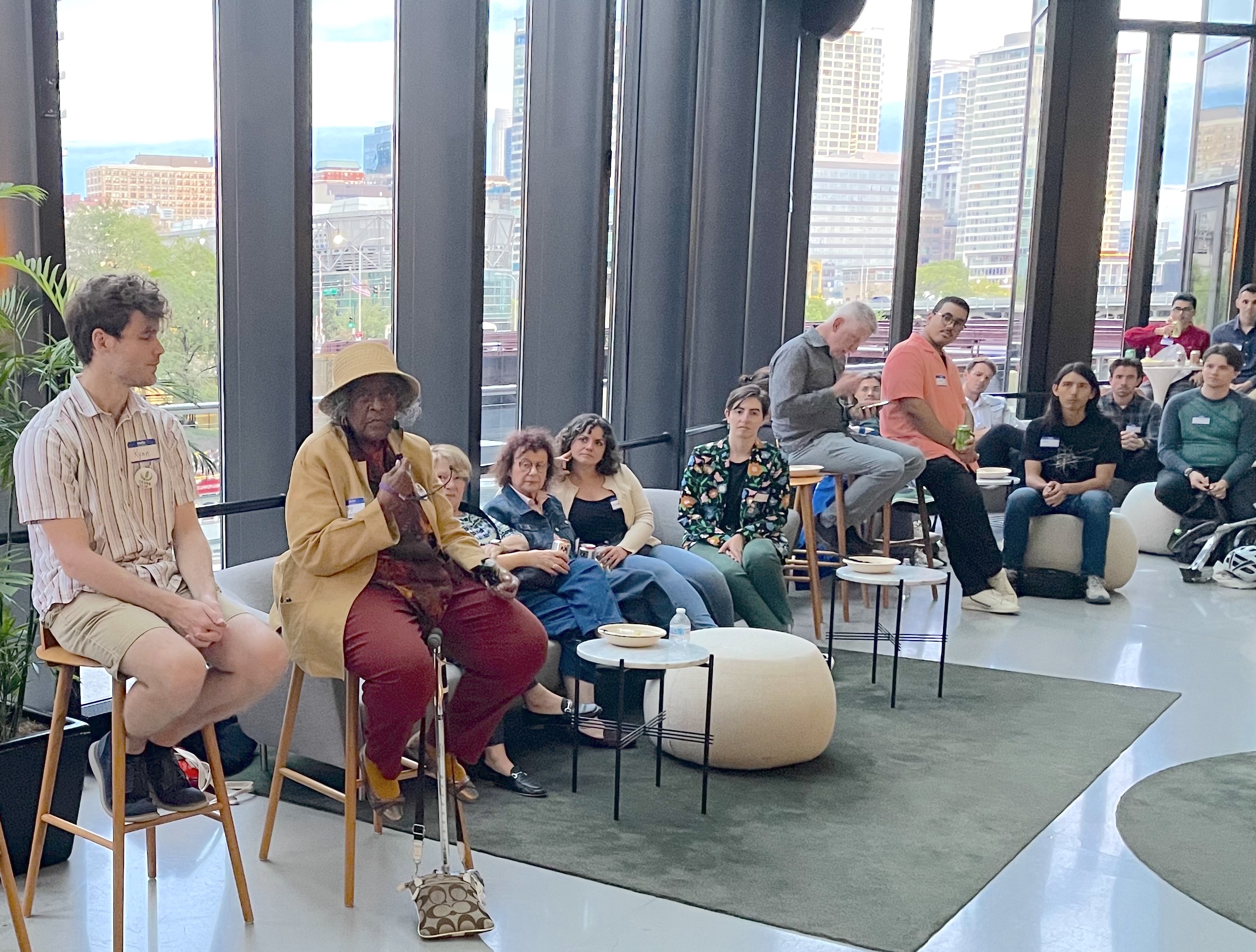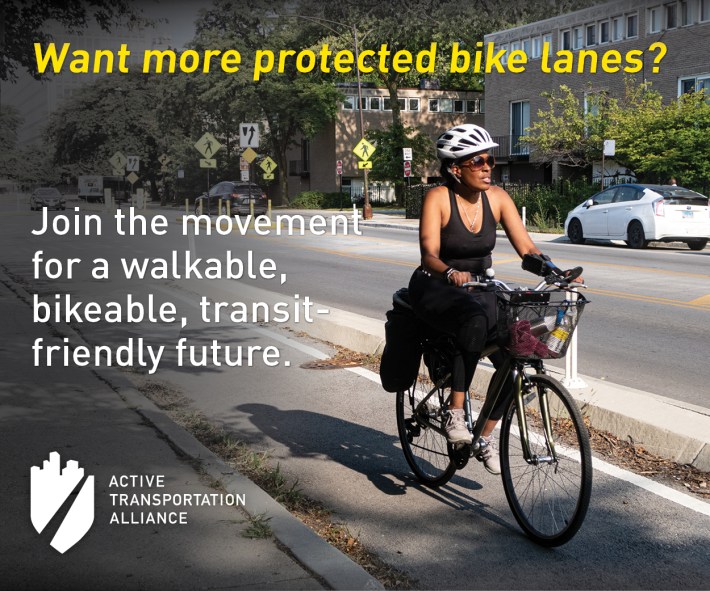
Last Friday, several major players in the Chicago urbanism, sustainable transportation, environmental advocacy scenes gathered for A Big Tent Urbanist Coalition Meetup at the Climate Action Museum, 300 S. Riverside Plaza. The event was co-sponsored by the Chicago chapters of the Congress for the New Urbanism, Urban Environmentalists, Strong Towns, Chicago, Bike Grid Now! Abundant Chicago, Sierra Club, Commuters Take Action, and Emerging New Urbanists. See info on how to connect with these groups at the bottom of this post.
"The main idea behind A Big Tent Urbanist event was to bring together several leaders and advocates in Chicago working to improve the built environment with intentions of advancing causes that align between each of the groups," said co-organizer Aaron Feldman. He's a co-leader of Strong Towns Chicago and a member of Urban Environmentalists. "All the cosponsor organizations are aligned in their belief that Chicago is in a pivotal moment right now, and we can use that leverage to build a more sustainable Chicago, with better policies regarding housing, transportation, fiscal responsibility, street infrastructure, and parking."
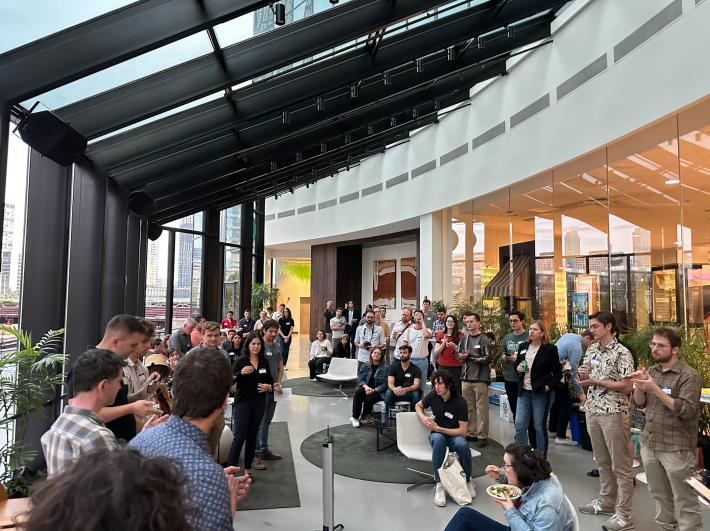
The keynote speaker was Center for Neighborhood Technology Vice President of Government Affairs Jacky Grimshaw, a veteran transit advocate. (I happen to be her grandson.) In keeping with the goal to make Chicagoland transportation more sustainable and equitable, Ms. Grimshaw addressed the elephant in the room: just how endangered our regional transit system is.
She noted that the Chicago region will faces a $730 million transit fiscal cliff in 2026, when all the federal COVID-19-related stimulus funding from "Uncle Joe", as she called President Biden, is about to run out. Unless we find a replacement for that money, we will need to cut at least 40 percent from the CTA, Metra, and Pace budgets.
Ms. Grimshaw added that if state legislators are willing to give Illinois public transportation an additional $1.5 billion, that will take care of operational requirements, create better service, and avoid fare increases, However, we're also going to need to convince taxpayers that they should support such legislation. She said that ideally, we'd have enough transit funding able to pay for 24-hour Metra service and launch robust bus rapid transit to provide better access to parts of the city and region that don't have train service.
"So just think about it," Ms. Grimshaw said. "Think about the trains that you know. They may be 'ghost trains' now, but if we get a 40 percent cut, they may not [be] a train at all... So it's important that we fill that gap, and just closing $730 million in annual debt is not enough. Because we want to have improved services. We want to have a better system than we have right now."
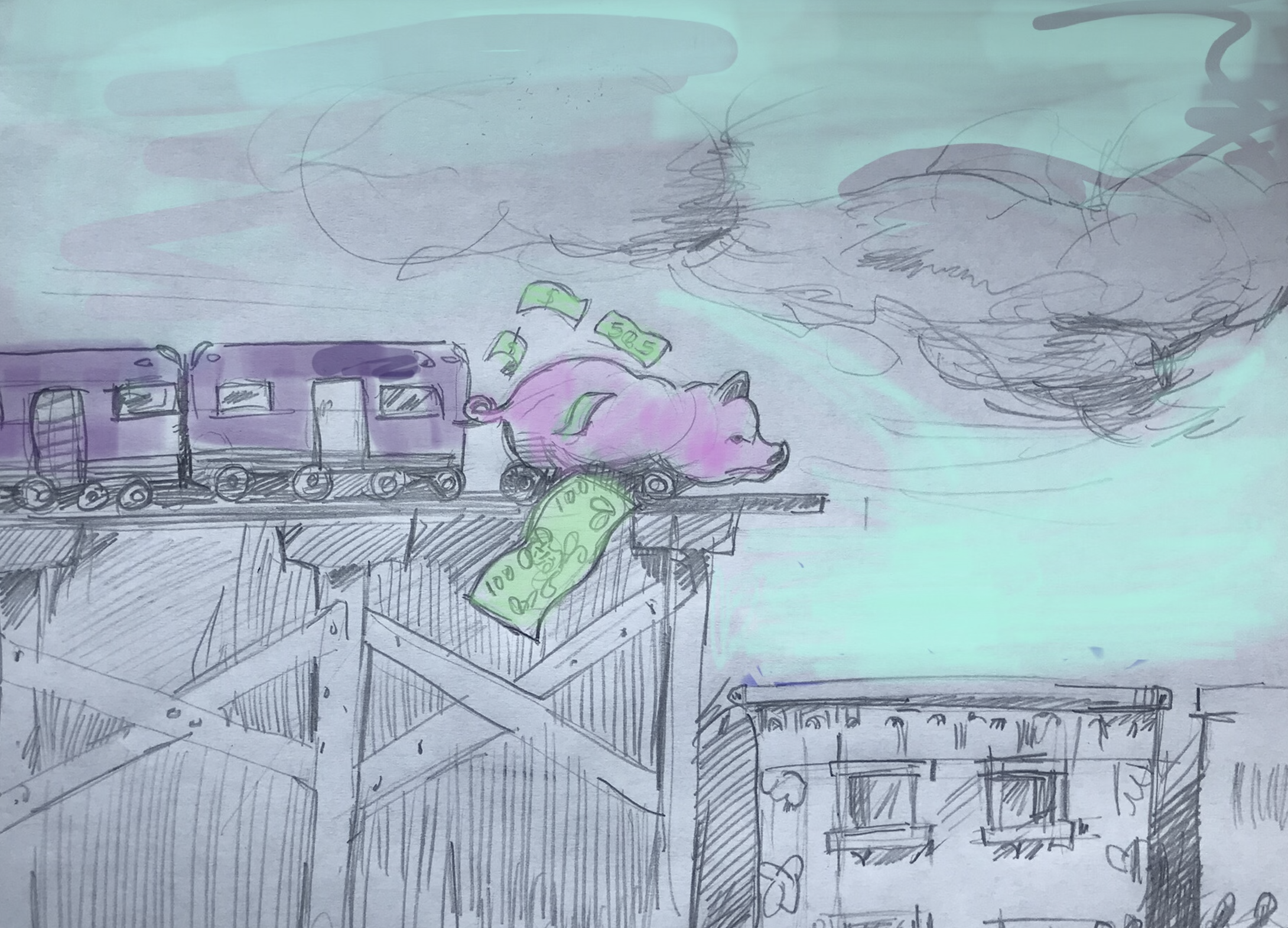
"That's one thing in my years of working with the legislators, starting back to Harold Washington in 1983," Ms. Grimshaw said. "We have this current dumb system right now, which is that legislators don't like to give money without having something more. Because their attitude is that you're not doing something right, let's see if we can make the system better from an operational standpoint. So what we would like to do is instead of having four transit agencies, how about one? What do you think?" In response, several members of the audience clapped.
"Right now, we have a bunch of people making transit decisions, and most of them don't know what they're doing or what they're talking about," Ms. Grimshaw argued. "They're political appointees in some way or another. And so we want to have professional leadership for our transit system, to bring it together and rationalize it. So that you can go from Pace to Metra to the CTA on the schedule using one fare card."
Ms. Grimshaw pointed to the Netherlands' OV-chipkaart universal smart card as an example of a fare card that lets customers access buses, trains, and bike-share cycles nationwide. She noted that if Chicagoland merely had a regional, multi-system card, that would make it easier for people to get where they need to go completely car-free, "and not have to rely on a taxi or an Uber or whatever to go that last mile."
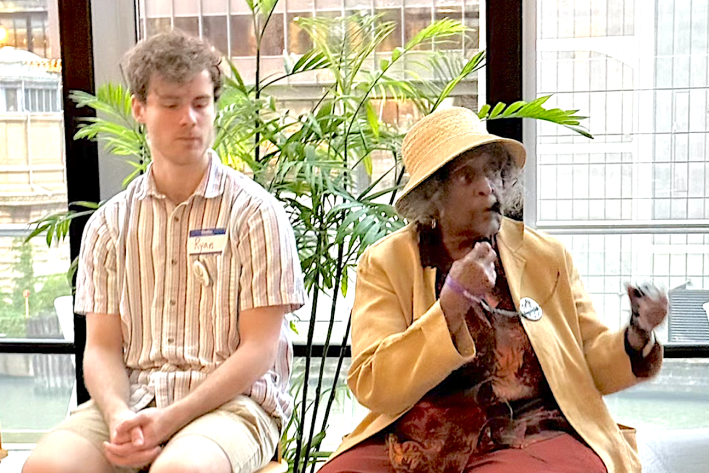
During the Q & A, she was first asked for her honest opinion about Mayor Brandon Johnson's record on transportation, but she requested that her response be kept off the record. However, one answer that was on the record was her thoughts on how to improve transit access in lower-income communities of color like West Garfield Park and Englewood. Ms. Grimshaw related that question to past efforts to get equitable transit-oriented development built near train stations.
"The architect from CNT, who was also a [Center for the New Urbanism member] and I went to the [Regional Transportation Authority, which oversees the three local transit agencies] and said, "We'd like to talk to you about having a transit-oriented development strategy around the trains," Ms. Grimshaw recalled. "Every time we went there, we just got a cold shoulder. We could not convince [RTA staffers] that this was a good idea. And so again, we would use those words like 'density.'"
"Finally after about three or four meetings, we figured out that when we said 'density,' what went through their minds, their visualization, was the State Street corridor," Ms. Grimshaw said. She referred to a long expanse of low-quality, high-density, high-rise public housing on the South Side just east of the Dan Ryan expressway and the CTA Red Line that was demolished under the Mayor Richard M. Daley administration. "They wanted nothing to do with that."
"So we had to change our strategy," Ms. Grimshaw added. "We started showing them pictures of [more livable-looking] dense communities that were not like the State Street corridor... And then we started to have a conversation... And now you look at the RTA and they just boast about TOD, and I just look at them and laugh."
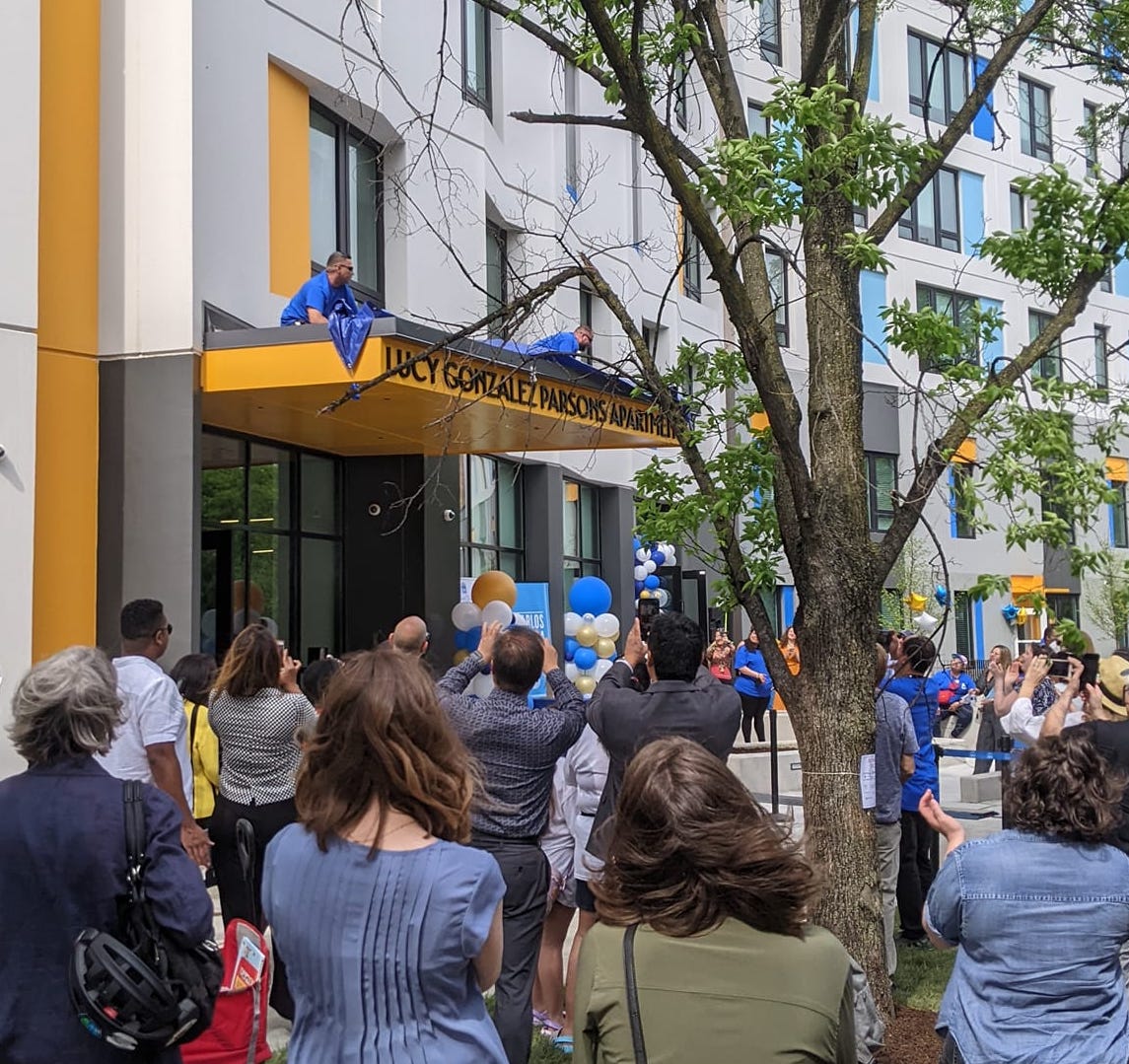
"The message still goes," Ms. Grimshaw concluded. "You have to speak to them in their terms" and convince people that eTOD, which reduces car-dependence and provides more customers for local retail, will benefit everyone in a community.
Info on the organizations that took part in the event (their language):
- Urban Environmentalists: Become a member for $35 per year here! Joining grants you access to private events, the email list, and the slack group.
- Strong Towns: Join the slack and the email list
- CNU (Congress for the New Urbanism) Chicago: To become locally involved, click here. To learn more about CNU, check out CNU.org.
- ENU (Emerging New Urbanists): To become involved with ENU, click here. To learn more about ENU, visit emergingnewurbanists.org and to follow their Instagram page, click here.
- Bike Grid Now: Follow our twitter/X
- Sierra Club: Join our Water Team, Transportation Team, or City Council Action Team here
- Commuters Take Action: Join the discord conversation and email list
- Abundant Chicago: Check out our website to sign up for emails!

Did you appreciate this post? Please consider making a tax-deductible donation, to help keep Streetsblog Chicago's sustainable transportation news and advocacy articles paywall-free.
